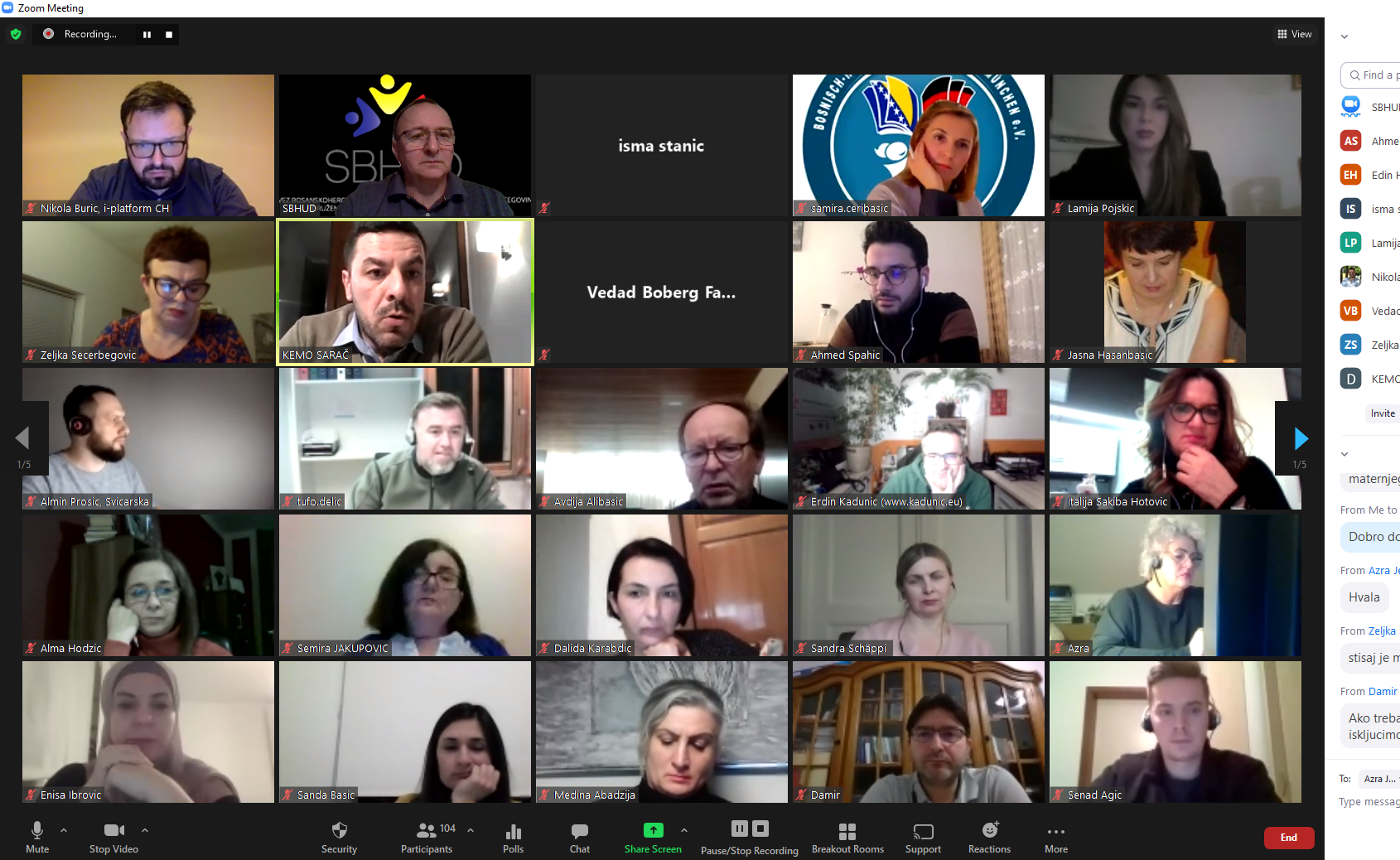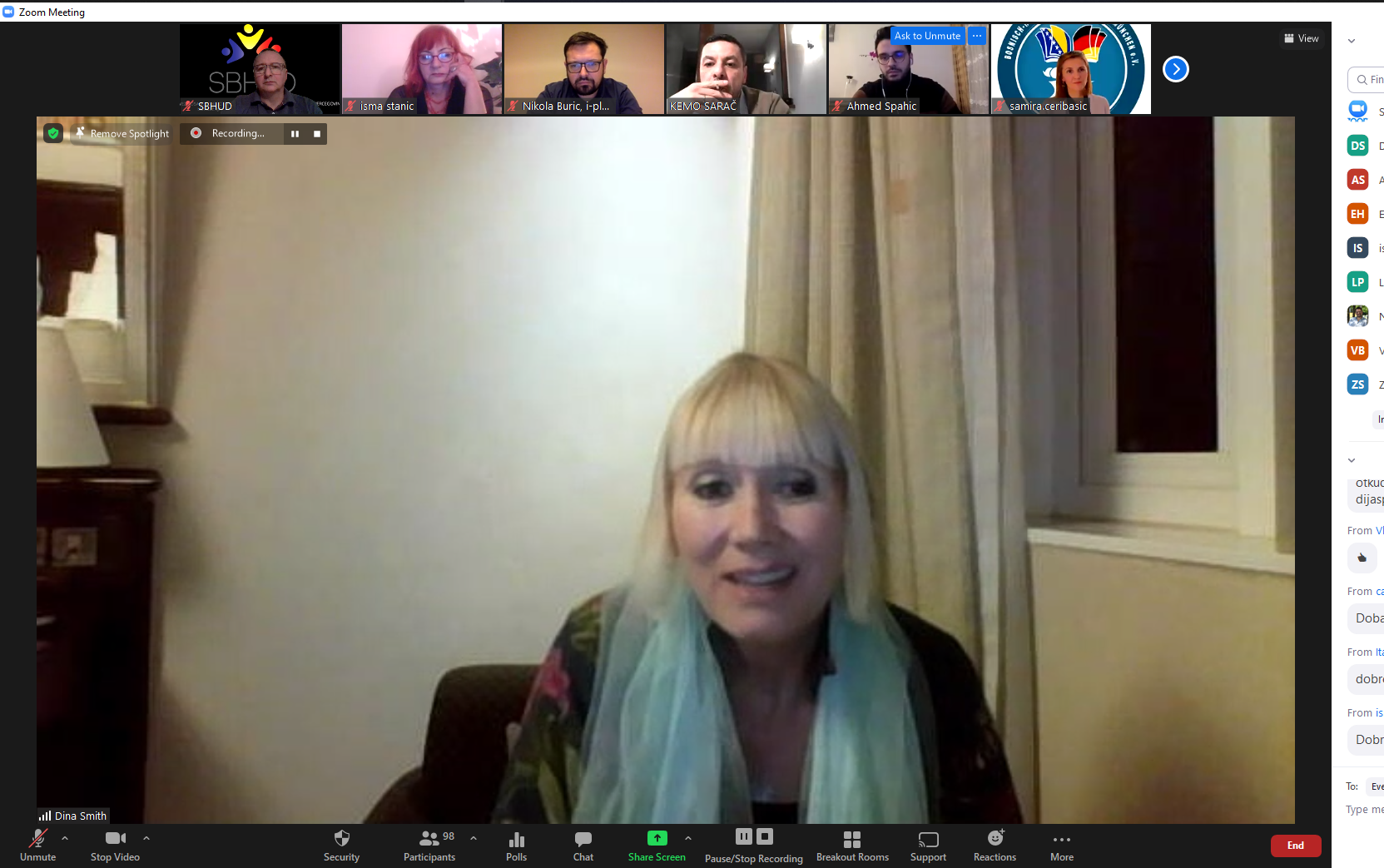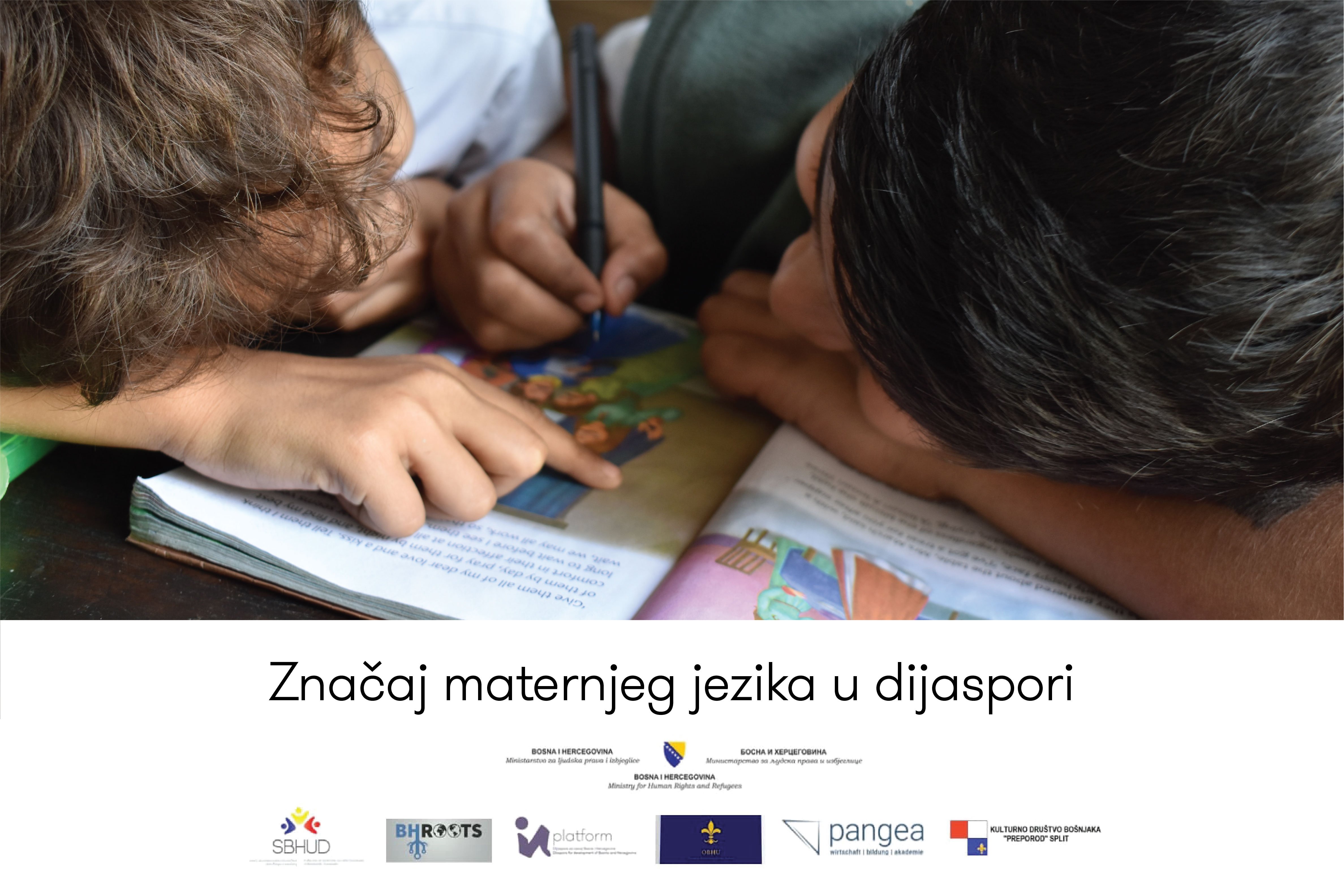Over a hundred participants in the online event "The importance of home language in the diaspora"
Thematic meeting organized at the initiative of six emigrant organizations, gathered around the concept of Diaspora Online Check-In (i-platform from Switzerland, pangea network from Germany, BH Roots and the Board of BiH Teachers from Denmark, the Bosniak Cultural Society "Preporod" from Split and the Association of Bosnian Associations, which also operate in Denmark), and with the indispensable support of the Ministry of Human Rights and Refugees of BiH, from the Sector for Emigration, hosted over a hundred participants, both from Bosnia and Herzegovina and from all parts of the world. So many participants greatly exceeded the expectations of both the organizers and the speakers of this pioneering online event.

At the very beginning of this two-hour event, the participants were addressed by Mr. Kemo Sarač, Assistant Minister of the Ministry, as well as Mr. Nikola Burić, Executive Director of the i-platform, who spoke about the importance of online gathering of representatives of the Bosnian diaspora.
"Although the current circumstances, caused by the coronavirus pandemic, greatly limit us, we really did not want to give up on the set goals. All these organizations, together with the Ministry, regularly participated in monthly gatherings, which we called 'Diaspora Online Check-In', within which the idea to organize this thematic meeting was born. Aware of the importance of preserving the home language in the host countries, the topic of this first meeting was imposed quite logically", said, among other things, Mr. Sarač.
Parents have a key role
The central part of the lecture belonged to the esteemed dr. Dina Mehmedbegović - Smith, who has been researching home language for many years. The struggle for the preservation of the home language, Mehmedbegović-Smith points out, is also taking place in numerous, much more developed communities than in Bosnia and Herzegovina.
Mehmedbegović-Smith conducted most of her research in Great Britain. Researching, she realized that the use of home language is especially important for many people, among other things, for the sake of quality maintenance of relations with the family in Bosnia and Herzegovina, then for the sake of preserving identity, but also understanding the culture of origin. However, in the opinion of the surveyed parents, who in her opinion are key to this issue, the English language is more important for the future business success of the child, claims Mehmedbegović-Smith. It is interesting that those who have yet to become parents are equally responsible for the preservation of the home language in the host countries. The future language development of the child will depend on their decisions, as well as the child's feelings regarding this issue.
"Parents act as legislators in the house, they decide which language to speak during joint activities, but they also bear great responsibility for their decisions. Also, some parents face a certain fear, believing that their child, with frequent use of the home language, will not do well in the host country, which, ultimately, can negatively affect the daily use of home language", adds Mehmedbegović-Smith.

Preservation of the native language largely depends on supplementary schools in which people of the same origin gather, participate in joint activities, and pass on knowledge related to geography, history, art and music culture to children. In these places, the networking of BiH communities in the diaspora takes place, which is really important.
Also, according to the conducted research, parents who promote bilingualism, which is very important for the cognitive development of the child, are greatly helped by media content. Dr. Mehmedbegović - Smith has developed an approach called "Healthy language diet" which is generally accepted in many European countries, and you can read more about it on her website.
Examples from practice
Mr. Vedad Boberg Fazlić presented to the participants of this event the results of a questionnaire conducted in Germany, regarding online learning of the home language. Emphasizing that this is not a scientific research, he pointed out several segments that formed the core of the questionnaire.
When asked whether children in their host countries study their home language, over 90% of respondents, Fazlić said, gave negative answer, but when asked if parents would be interested in their children learning their home language online, over 90% of respondents, this time, gave the affirmative answer, and added that their child, during the working week, would be willing to set aside one to two hours for this type of activity.
In Fazlić's opinion, quality and flexibility are key to successful online teaching.
The mentioned, internally, research was conducted in the period August - September 2020.
Ms. Samira Ceribašić, President of the Association of the Bosnian-Herzegovinian School in Munich, spoke to the participants of the event about how the home language has been studied in this country so far. She also said that this Association is involved in the project of multilingualism, and that, through it, the Bosnian language is promoted in Munich, while Ms. Jasna Hasanbašić, President of the Board of BiH Teachers in Denmark, focused on the younger generation of BiH parents in this country, which, in her opinion, make the Danish elite.
"Parents are very divided when it comes to learning home language in Denmark. Although the older generations, for the most part, still use their home language in everyday speech, younger people, originally from Bosnia and Herzegovina, approach this practice less and less often ", claims Hasanbašić.
She also pointed out the fact that, until 2019, there were nine supplementary schools in Denmark in which the home language was taught, two of which, unfortunately, were "shut down" due to the lack of interested parties.
Finally, the opportunity to address the participants was given to the esteemed Mrs. Azra Hodžić - Kadić, a lecturer in B/C/S language at the University of Vienna. She spoke about the "Discover Bosnian" project, but also about the issue of textbooks. According to her, children whose home language is a second or even a foreign language often encounter a problem due to the inadequacy of the textbooks themselves.
Satisfied with the event, the organizers promised to hold similar events in the future.
Note: Copying parts or the entire text is allowed with the obligatory citation of the source.
Subscribe to our newsletter and stay up to date!

